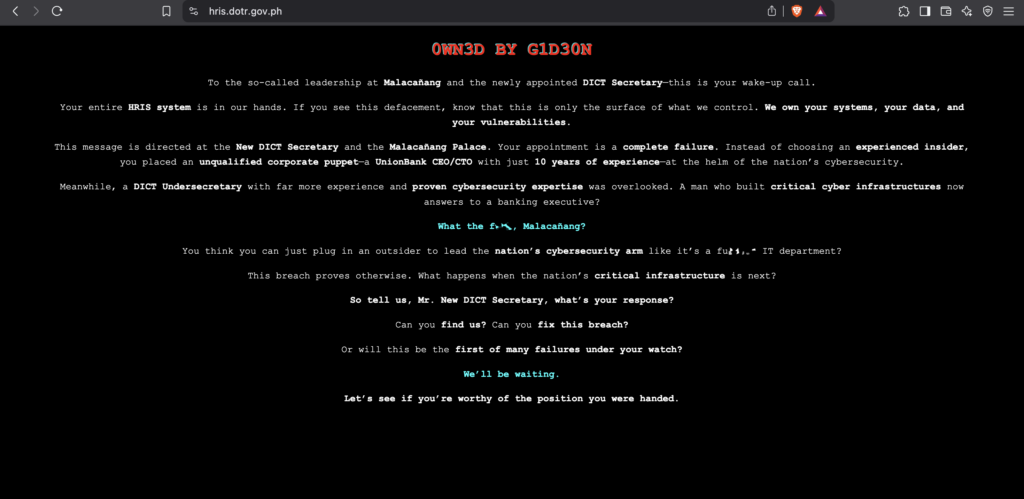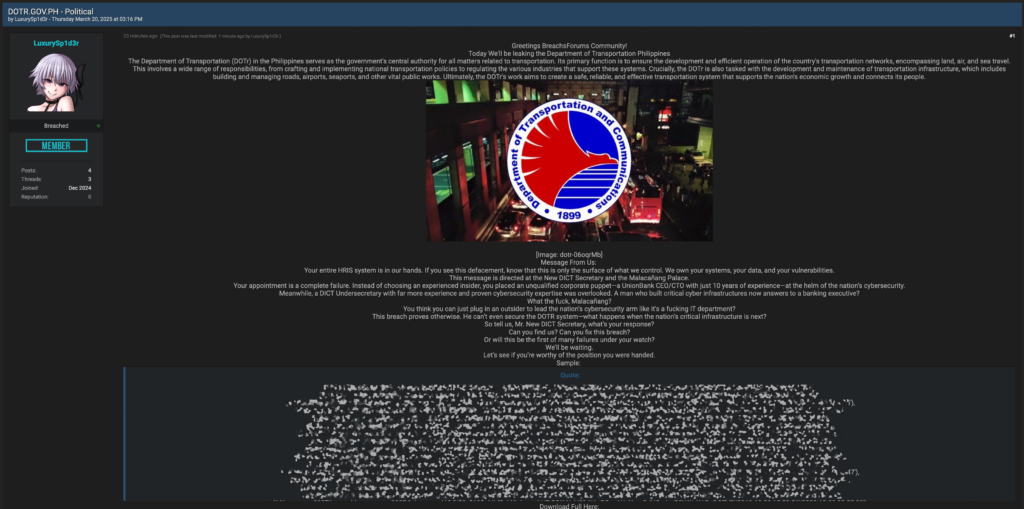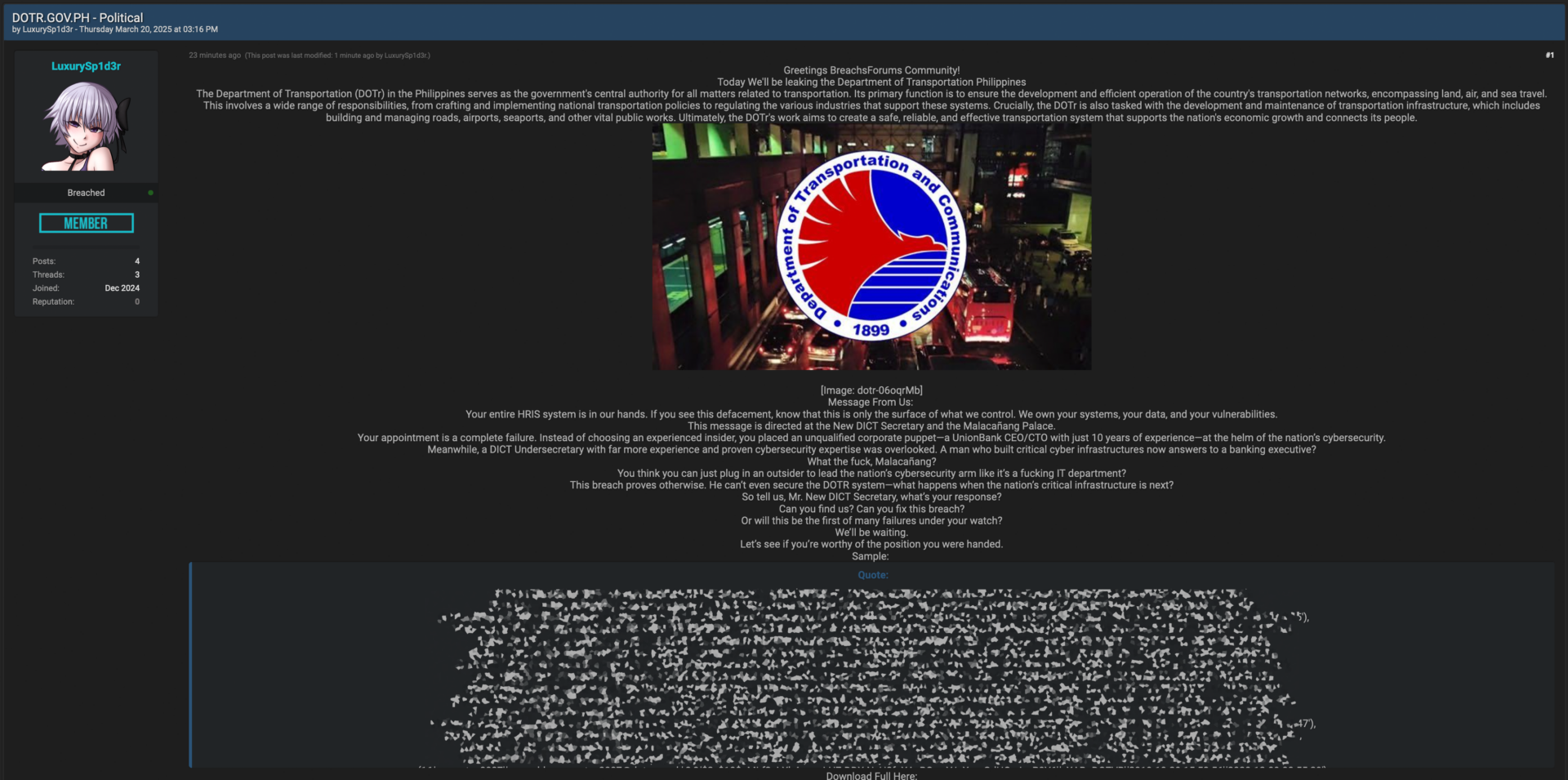The Department of Transportation (DOTr) of the Republic of the Philippines has fallen victim to a major cybersecurity breach, culminating in the defacement of its website and the exfiltration of sensitive government data. The attack, carried out by an entity identifying as “G1D30N,” has exposed critical flaws in the country’s cybersecurity framework, prompting serious concerns about the leadership and direction of the Department of Information and Communications Technology (DICT).
What Happened?
The DOTr’s website was defaced with a bold and alarming message, directly challenging the newly appointed DICT Secretary and the national administration’s cybersecurity leadership. The defacement note, written in an aggressive and confrontational tone, claimed that the attackers had full control over the Human Resource Information System (HRIS), indicating a deeper level of access beyond just the website.
Defacement Message Highlights

The defacement note specifically:
- Claimed complete control over DOTr’s HRIS system and internal data.
- Criticized the appointment of the new DICT Secretary, highlighting their perceived lack of experience in cybersecurity.
- Questioned the decision to overlook a more qualified DICT Undersecretary in favor of a banking executive.
- Issued a warning about the potential compromise of national critical infrastructure.
- Challenged the DICT and Malacañang to respond effectively to the breach.
The Bigger Picture: A Cybersecurity Failure
This attack exposes critical vulnerabilities in the Philippine government’s cybersecurity posture. The hacker(s) did not merely deface the website—they claim to have control over sensitive HR data, which raises major concerns about the extent of the breach. If the attackers do possess this data, it could mean the exposure of government employee records, payroll information, and other classified documents.
Key Issues at Hand
- Weak Government Cyber Defenses
- The ease with which the attackers infiltrated DOTr’s systems suggests a lack of robust cybersecurity measures.
- If a core government agency can be breached this easily, what about other departments managing national security, finance, or critical infrastructure?
- Leadership Controversy in DICT
- The hacker(s) directly questioned the appointment of the new DICT Secretary, criticizing their lack of deep cybersecurity expertise.
- They also pointed out that a more experienced DICT Undersecretary was overlooked.
- Potential National Security Risks
- If attackers can breach government systems and exfiltrate sensitive data, the risk extends beyond DOTr.
- Could critical infrastructure, such as power grids, water systems, and national defense networks, be next?
The Implications of This Attack
This breach is more than just a defacement; it’s a wake-up call, but also full HRIS database was just posted for download on infamous BreachForums ..

Conclusion
This attack on DOTr is a stark reminder that the Philippines remains highly vulnerable to cyber threats. It exposes not just technical weaknesses but also critical leadership and policy failures in the DICT. The question now is: Will the government take this as a serious call to action, or will this be the first of many high-profile cybersecurity disasters?
![Breached [dot] blog](https://breached.blog/wp-content/uploads/2025/03/logo-3.png)
